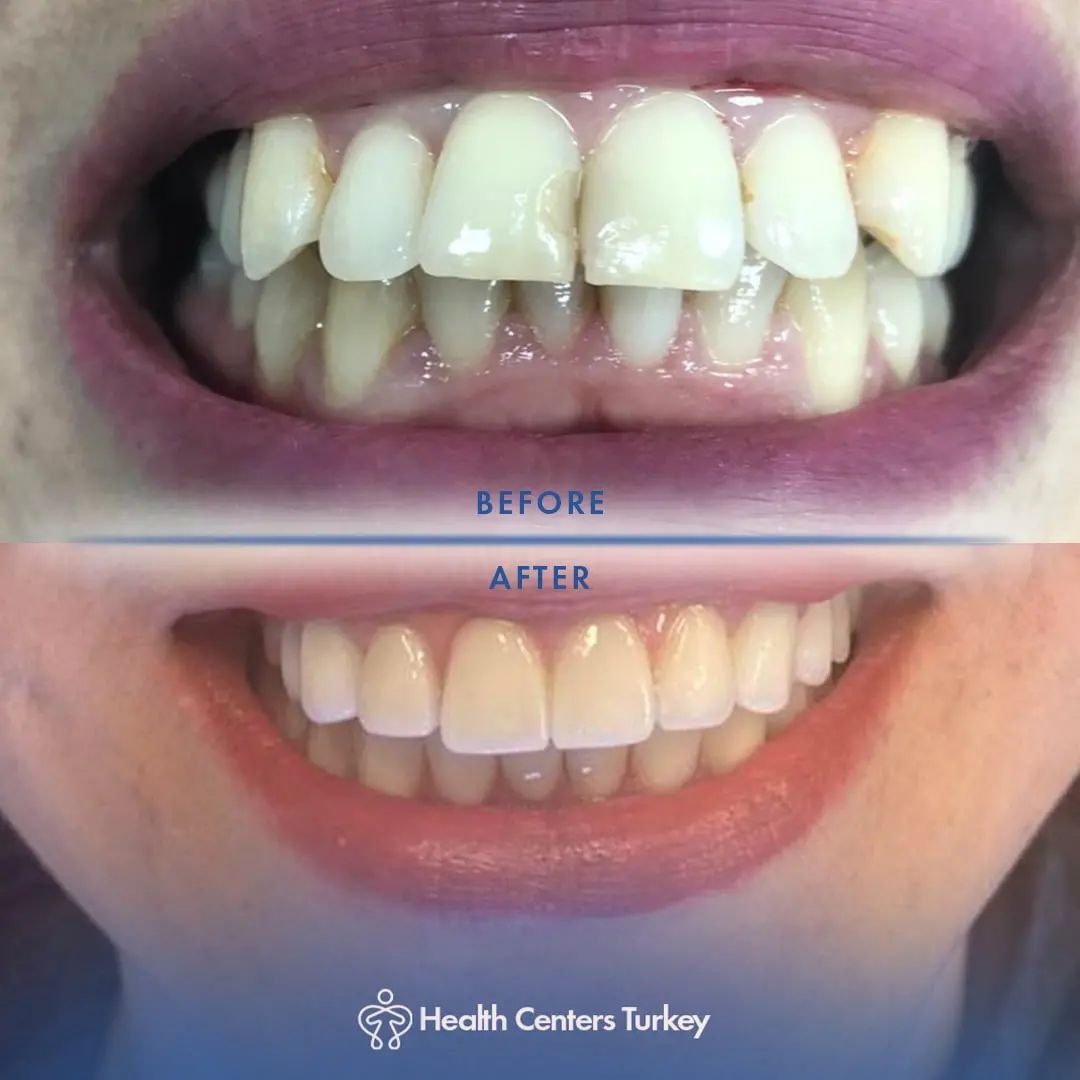Outstanding Dental Clinics Accessible to International Patients in Turkey
Outstanding Dental Clinics Accessible to International Patients in Turkey
Blog Article
Outstanding Dental Services Focused on Quality Care

Dental implants have become a focal point in modern dentistry, offering a dependable answer for those going through tooth loss. Among the a number of advantages they provide, one vital side value considering is their impression on adjacent teeth. Understanding how dental implants affect surrounding teeth aids in making informed selections about oral health.
When a tooth is lost, neighboring teeth can easily shift toward the area left behind. This motion can lead to misalignment, which compromises the general bite and performance of the mouth. Dental implants mimic natural tooth roots, thereby maintaining the position of adjacent teeth.
Affordable Dental Care Packages in Turkey including Implants and Cosmetic Dentistry
The stability provided by an implant is essential, as it helps in preserving not simply the bodily alignment but additionally the structural integrity of the jawbone. When a tooth is missing, the underlying bone can start to deteriorate because of lack of stimulation. An implant exerts strain on the bone throughout chewing, similar to a natural tooth, which promotes bone health.
In some instances, a bridge or partial denture could additionally be thought of as an alternative to implants. While these choices could restore some performance, they can place further stress on neighboring teeth. Bridges normally require submitting down the surrounding teeth to accommodate the anchors, thereby affecting their health over time. Dental implants, on the opposite hand, don't alter present teeth, making them a more conservative choice.
Experience Luxury Dental Care in Turkey at Competitive Prices
Hygiene turns into one other crucial issue when contemplating adjacent teeth in the context of implants. With dental implants, the individual can keep an everyday hygiene routine similar to natural teeth. Flossing and brushing around the implant are easy, guaranteeing that the gum tissue remains healthy and minimizing the risk of gum disease that could adversely affect adjacent teeth.
Moreover, the supplies utilized in dental implants are biocompatible. This means they are designed to combine well with the body, decreasing the possibilities of an opposed reaction. This attribute not only makes the implant safe but in addition protects close by teeth from potential points that might come up as a result of contamination or infection.
In terms of aesthetics, dental implants offer a natural look and feel, intently resembling unique teeth. Adjacent teeth benefit from this aesthetic attraction as well. When an implant is placed, the encircling gum tissue may be formed to mimic natural contours, thereby enhancing the overall appearance of the smile. This aesthetic factor can encourage people to spend cash on their oral care routines, benefiting each the implants and adjacent teeth in the long term.
Remarkable Dental Care Experiences for Foreign Patients
Another concern is the potential for gum disease, which might affect the health of adjacent teeth. Gum disease can happen when plaque builds up round teeth and implants. Regular dental visits and acceptable oral hygiene can mitigate this concern. The presence of implants can even function a motivator for higher dental hygiene practices, as people turn into extra acutely aware of sustaining their general mouth health.
Studies have proven that dental implants can contribute to a big improvement in quality of life. Patients often experience elevated confidence and are much less hesitant to smile or have interaction in social interactions. A wholesome and well-maintained smile not directly promotes better look after adjacent teeth, as individuals are likely to become extra conscious of their general oral hygiene.
One often-overlooked facet is the psychological impact of dental implants on patients. Knowing that implants offer long-term options can ease the anxiousness associated with tooth loss. With fewer worries about future tooth shifts, More hints patients usually have a tendency to invest time and effort into caring for his or her teeth, which incorporates adjacent teeth.
In conclusion, dental implants serve as greater than just a resolution for missing teeth; they play a pivotal position in maintaining the health and integrity of adjacent teeth. From stopping misalignment to promoting gum health and enhancing aesthetics, the advantages are manifold. By opting for implants, people cannot only restore performance but also foster a more healthy oral surroundings for surrounding teeth. The psychological and aesthetic advantages further contribute to an total enhanced quality of life.
Enhance Your Smile with Dental Veneers in Turkey
In the long run, understanding how dental implants have an result on adjacent teeth can guide individuals in making empowered decisions relating to their dental health. The integration of those implants into the mouth acts as a stabilizing pressure, safeguarding both the bodily alignment and performance of neighboring teeth, while selling a long-lasting, wholesome smile.
- Dental implants sometimes do not exert stress on adjacent teeth, maintaining their integrity and lowering the risk of shifting or misalignment.
- The placement of an implant usually encourages better oral hygiene habits, positively influencing the health of adjacent teeth by way of improved cleaning practices.
Outstanding Dental Services Focused on Quality Care
- In some circumstances, dental implants can stimulate the surrounding bone, which helps preserve the natural teeth's position and total dental structure.

- The gap left by missing teeth can lead to bone loss; dental implants can prevent this, thereby defending adjacent teeth from potential problems.
- Explore Complete Oral Treatments within Turkey
Maximize Your Savings Dental Treatments in Turkey
- By restoring the function of a missing tooth, implants assist distribute chunk forces evenly, reducing put on and stress on neighboring teeth.

- Properly positioned dental implants can act as a assist structure, stopping undesirable motion of adjacent teeth ensuing from tooth loss.
- The presence of an implant might improve the aesthetic appearance of surrounding teeth by filling in gaps and supporting facial structure.
Remarkable Dental Services Focused on Quality Care
- Dental implants eliminate the need for adjacent teeth alteration, in contrast to bridges, which require reshaping the nearby teeth for support.
- Implants additionally cut back the chance of gum disease compared to different tooth replacement choices, indirectly benefiting adjacent teeth by promoting overall oral health.
Experience Luxury Dental Care in Turkey at Competitive Prices.
- Long-term success of dental implants is linked to the health of surrounding teeth, emphasizing the significance of normal dental check-ups and maintenance.
How do dental implants affect adjacent teeth?
Discover Best Dental Treatments in Turkey including Implants, Veneers, and More
What are dental implants and the way do they work with adjacent teeth?undefinedDental implants are synthetic tooth roots placed into the jawbone to support replacement teeth. They don’t affect adjacent teeth directly, as they're impartial constructions. Instead, they might help keep the integrity of surrounding teeth by preventing bone loss.
Can dental implants cause damage to adjacent teeth?undefinedIf positioned appropriately, dental implants shouldn't harm Click This Link adjacent teeth. However, improper placement can result in points like misalignment or strain, emphasizing the significance of choosing an experienced dental skilled.
Will dental implants promote bone progress around adjacent teeth?undefinedYes, dental implants assist stimulate the jawbone, which might encourage bone progress. This can benefit adjacent teeth by maintaining bone density and stability within the space.
Increase Your Self-Esteem with Quality Dental Care
Should I fear about gum disease affecting adjacent teeth after getting an implant?undefinedGood oral hygiene is essential after getting an implant. Gum disease can still have an effect on adjacent teeth, however a properly maintained implant doesn't improve that risk. Regular dental visits can help monitor and preserve gum health.
What occurs to adjacent teeth if I lose a dental implant?undefinedIf a dental implant fails or is misplaced, adjacent teeth may shift because of adjustments in chew alignment and support structure. This may lead to misalignment or extra tooth loss if not addressed.
Are there any particular care requirements for adjacent teeth after getting implants?undefinedMaintaining good oral hygiene practices, together with regular brushing, flossing, and dental check-ups, is essential for each dental implants and adjacent teeth to prevent decay and gum disease.
Why Choose Dental Treatments in Turkey including International Patients
Do dental implants help assist adjacent teeth when chewing?undefinedAbsolutely. Implants can improve total chew function, which might alleviate stress on adjacent teeth during chewing. This can result in better distribution of forces, selling oral health.
How can I prevent problems with adjacent teeth and implants?undefinedConsistent dental care, including skilled cleanings and examinations, regular brushing and flossing, and following your dentist’s aftercare directions, are key to preventing issues.
Can adjacent teeth move if I even have a dental implant?undefinedAdjacent teeth might move if they do not seem to be well-supported, particularly after tooth loss. A dental implant helps maintain the structure, decreasing the risk of shifting teeth. Report this page